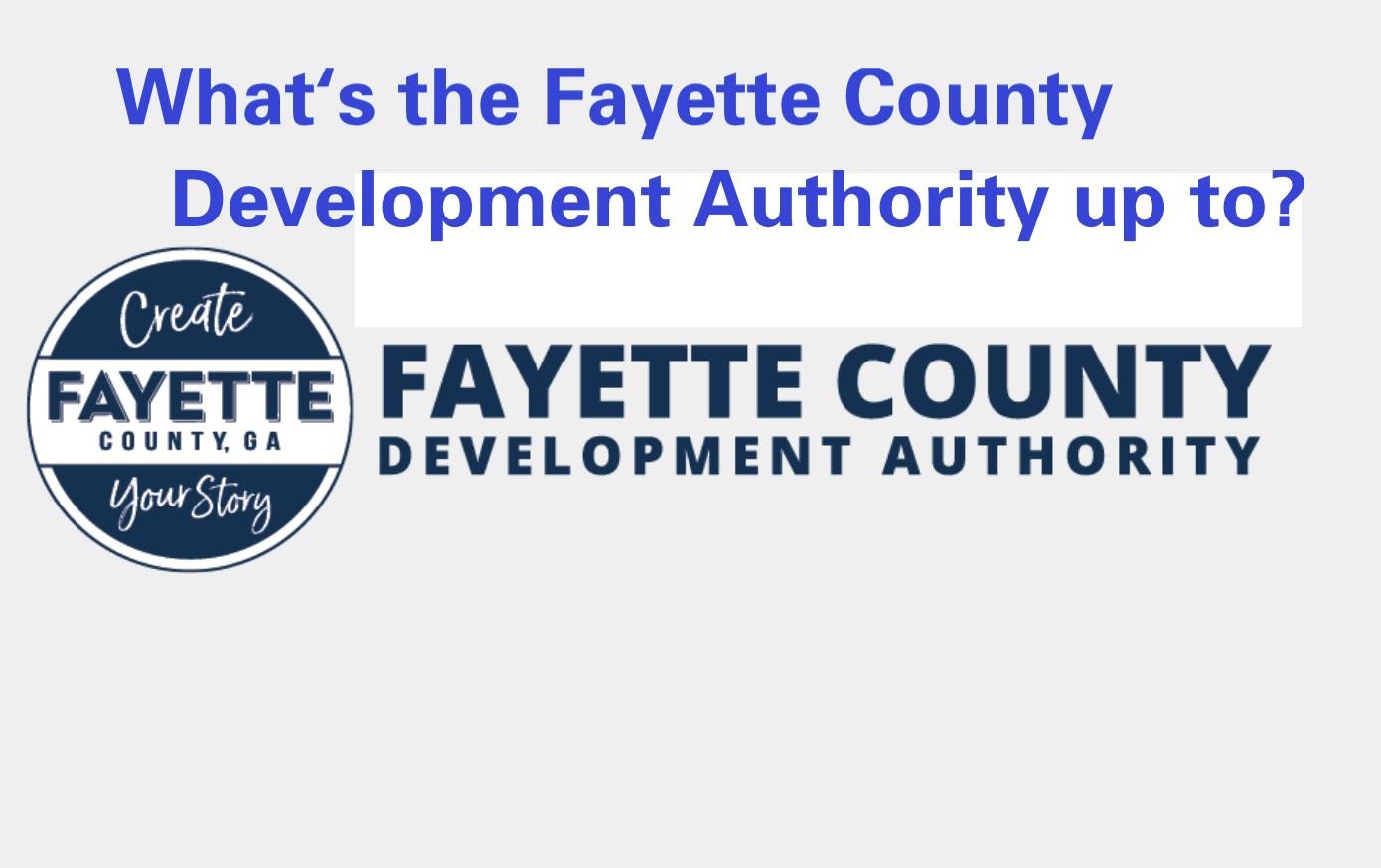Fayette County Development Authority becomes self-funded entity —
It was recently announced that Quality Technology Services (QTS) purchased 600 acres on Fayetteville’s west side for the development of a data center campus. Perhaps as important is how the sale came about and what it means for the future of economic development for Fayette County.
The sale price for the 600 acres was $153.8 million, translating into eye-popping amount, at least for large tracts in Fayette County, of approximately $250,000 per acre, according to the Fayette County Development Authority.
Given the way things unfolded during the past few years, as will be detailed below, FCDA served as the developer for the site, having secured options on the parcels. After expenses when the sale was finalized, including with the property owners and the broker paid, FCDA netted $75 million.
It was FCDA Chief Strategy Officer Joan Young who laid out the vision for the development, and it was FCDA President Megan Baker who landed the project.
It should be noted that the high price for land is often the case with the purchase of properties that will house data centers, based on the current market rate for properties where data centers are located in metro Atlanta and elsewhere, said Baker.
By way of example, Microsoft in 2021 purchased 93 acres in Douglas County for $13.8 million, or $148,000 per acre, according to datacenterdynamics.com
In Phoenix, QTS recently purchased nearly 400 acres for $255 million, or $637,500 per acre, datacenterdynamics.com said.
As for the $250,000 per acre price for the 600 acres in Fayetteville, it was established by the broker, not by FCDA.
Young noted that the transaction was not without significant risk. The entire deal could have collapsed, given that the options on the property (with the first options coming a few years ago) were set to expire in three weeks. At that point there would have been no sale.

FCDA Chairman Darryl Hicks referencing the $75 million in proceeds, noted that, in general, FCDA is one of three parties to an economic development deal that includes the sale of land.
There is the prospect, who represents their investors; there is the landowner who represents them and their family; and there is the development authority who represents the citizens of the county. In this case, the result is a win for the citizens of Fayette County, said Hicks.
“Our goal has been and will continue to be about attracting economic development projects that are the right fit and yield a positive outcome for the county. In this case, we have brought a great company to Fayette County and maximized the Rate of Return (ROR) for the citizens, which will be reinvested back into the entire county, benefiting all stakeholders,” said Hicks.
The proceeds put FCDA in the position of being self-funding, with no need for future operational funding by the county and the municipalities, and with FCDA set to reimburse those entities for their operational funding for 2021 and 2022. Plans for developing future economic development projects are currently underway, with that process detailed below.
So how did the project come about?
Baker said the land sale was the culmination of six years of work to achieve multiple goals, including the development of a business park, attracting a high-value project for Fayette County and achieving funding self-sufficiency.
It was in late 2016 that the 600-acre site was identified as the best and last major site in Fayette County for economic development, with FCDA focusing on developing and marketing the site.
Then in 2017, 200 of the 600 acres were annexed and rezoned to business park zoning in the City of Fayetteville as part of efforts to both recruit the active prospect Facebook and support development efforts. Although the site was a finalist, Facebook ultimately chose Stanton Springs, a 1,600-acre joint development park established by four counties east of Atlanta on I-20. Facebook provided FCDA with all its due diligence on the property valued at $2 million, which the FCDA then used to market the site.
In 2018, the target sector was narrowed to a business park that would focus on technology, film and entertainment and a headquarters.
Also in 2018, FCDA proposed a joint business park like Stanton Springs with Fayette County and the municipalities. Modeled after Stanton Springs, each entity would invest in the purchase of the land and infrastructure and would receive a return based on their investment. That return would have included shared taxes and profits from the sale of the land.
“At the time, there wasn’t an interest by any of the entities in taking on the risk of investing money in a joint venture business park,” Baker said.
Knowing the importance of the site, FCDA made the decision to take on the risk alone and move forward with developing the business park.
Over the next two years, FCDA assembled the 600 acres and, using its savings rather than its operational dollars while functioning as the developer, the Authority engaged professional services including, but not limited to, hiring a broker and performing additional due diligence. There was no guarantee that FCDA could sell the land without incurring a loss for the development authority in order to attract a good project, said Young.
In 2019, a data center campus was discussed with Pinewood, Coweta Fayette EMC, Fayetteville and Oceanic Data Centers’ Joel Embry. It was during that year that the Lester site along Ga. Highway 54 was optioned as the Phase 1 location for the data center campus, followed by a community workshop on technology and data centers.
In 2020, FCDA negotiated options with land owners on business park parcels and, after discussion with several brokers, hired Tim Huffman, Executive Vice President with CBRE Data Center Solutions. Discussion with several prospects followed.
In 2021, FCDA transitioned from the model of state-driven to broker-driven prospects, and renewed the options with landowners.
Then in 2022, the remaining 400 acres of adjacent property on Fayetteville’s west side was annexed and rezoned, followed by the purchase of the total 600 acres by QTS for data center campus development.
“We took the risk we presented to the county and municipalities. We could have lost money or made money, depending on the sale amount,” said Hicks. “That’s what risk is.”
“Ultimately, the risk resulted in success, and the land sale generated $75 million in proceeds,” said Baker. “The development authority achieved the goals set in 2016 with additional funds that will be reinvested back into the community for economic development-related projects. The same deliberate and intentional action is required to complete the next phase of economic development work.”
The obvious question is, where specifically does FCDA go from here?
The sale of the approximately 600-acres of land to QTS achieves FCDA’s goal of budget self-sufficiency and provides investment opportunities for economic development related projects and programs in Fayette County, said Young.
One aspect of that self-sufficiency will come with the reimbursement to the county and the municipalities for their operational budget contributions to FCDA during 2021 and 2022. Beyond that, and given the proceeds of the land sale, there will be no need for future budgeting to the Authority. FCDA will financially stand alone.
“Over the next several months, FCDA will develop specific objectives and goals as part of a strategic planning process,” Young said. “The Authority will evaluate all aspects of current and future opportunities and develop a thoughtful, intentional plan of action that enhances the economic resiliency and competitiveness of Fayette County.”
FCDA spent more than six years developing and executing the action plan that brought it to this successful milestone.
“The same deliberate and intentional action is required to complete the next phase of economic development work,” Young said.
FCDA will make an announcement when the strategic planning process is completed, Baker added.













Leave a Comment
You must be logged in to post a comment.